MEF Newsletter September 2016
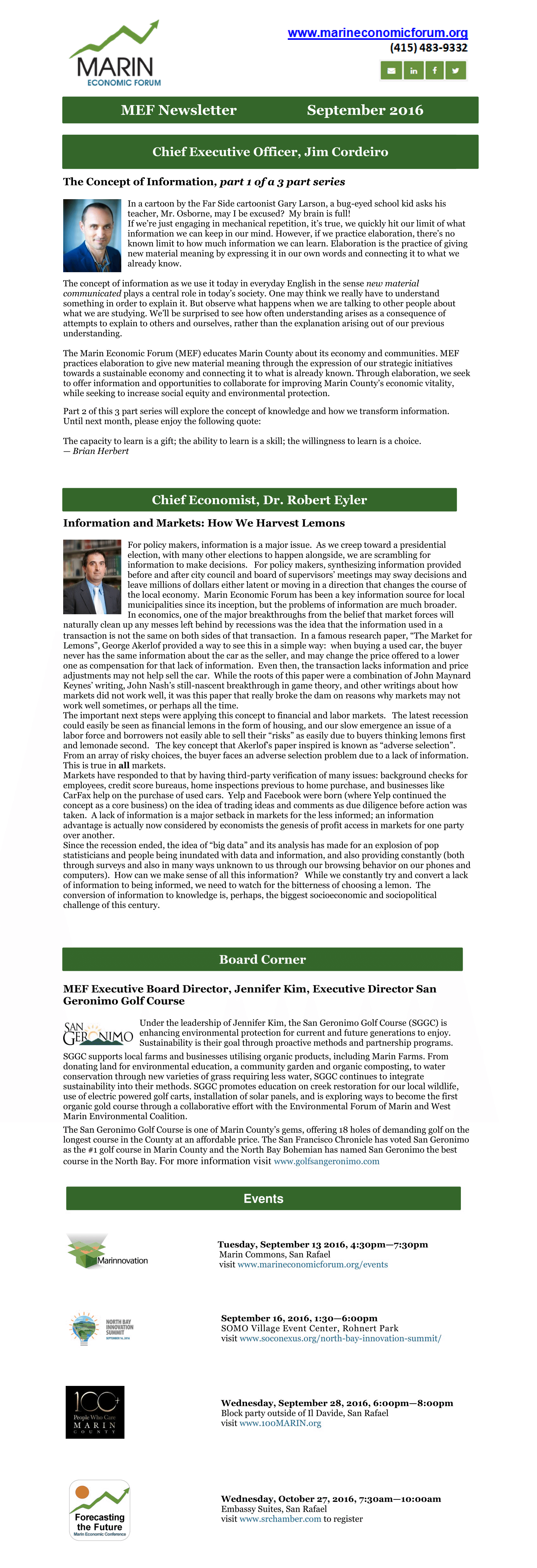
Marinnovation 2016
www.golfsangeronimo.com
North Bay Innovation Summit
100MARIN.org
Forecasting The Future


Marinnovation 2016
www.golfsangeronimo.com
North Bay Innovation Summit
100MARIN.org
Forecasting The Future

By Robert Eyler
Marin Independent Journal
 The recent passage of Brexit by voters in the United Kingdom raised many questions and had far-reaching consequences. And despite our small footprint, Marin County potentially will feel the repercussions.
The recent passage of Brexit by voters in the United Kingdom raised many questions and had far-reaching consequences. And despite our small footprint, Marin County potentially will feel the repercussions.
Some good; some not so good.
Nonetheless, whatever the local outcomes, they should make us realize that this is an interdependent financial world that we live in.
And all the more reason that such organizations as the Marin Economic Forum continue to be an important informational, networking and idea exchange.
Because we (and the North Bay region) have several companies that compete on a global basis, there are three immediate issues to contemplate: housing and financial market performance, shifts in tourism flows, and trade links to the UK as either a marketplace or a gateway to mainland Europe.
The Brexit decision assures that we are likely to remember 2016 as one of the most politically intense years of the century.
While our presidential election is slowly building to a crescendo in November, the UK vote to leave the European Union has already changed the scenario that whomever we elect will have to face.
Because the UK’s currency is the pound sterling and not the Euro used in EU countries, the unwind will be more about how currencies are trading for each other and less about compliance.
But the disconnect from trade and financial infrastructure based on EU membership will be a large enough headache.
Marin County, housing may be positively affected for two reasons.
First, the outflow of capital toward the United States from the UK will further reduce pressure on interest rates; the Federal Reserve knows this and may now further delay interest rate increases to prevent the U.S. from becoming a magnet for UK wealth seeking the slightest of interest rate gains.
Mortgage rates should remain stable and low, and housing demand will remain supported.
Those residents with global investments may find losses from emerging markets that have ties to the UK (e.g., Indonesia and Malaysia); countries like Japan may be financial beneficiaries although auto sales to the UK (and wine sales there for the North Bay region) may suffer.
For Marin County businesses, trade and labor connections to the UK may be delayed or hampered.
U.S. trade relations otherwise should be little affected.
Businesses such as Autodesk and BioMarin may need to consider the size and scope of offices and business branches in the UK if they are utilized to service Europe more completely.
This may slow progress in life sciences generally, especially if global uncertainty is exacerbated by this situation.
For tourism, we may see a flip of British tourism for Americans.
Marin County residents may now plan trips to London that they have delayed if the pound’s value falls significantly. For UK travelers, the opposite might be the case, reducing their visits to Marin County, wine country and the greater Bay Area.
Businesses in Marin County, such as hotels and B&Bs and restaurants, may hear fewer UK accents.
Under the assumption that global uncertainty ebbs a bit after the tidal wave of opinions and concerns is done crashing over news channels, Marin County should be economically good after this is all said and done.
The UK has multiple reasons to sort the aftermath out quickly, and allow us to prepare for November and more political zaniness.
Robert Eyler is dean of the School of Extended and International Education at Sonoma State University as well as the chief economist for the Marin Economic Forum.
August 2016
by MEF CEO Jim Cordeiro
 Year of the Entrepreneur
Year of the Entrepreneur
North Bay iHub celebrates the second annual North Bay Innovation Week highlighting innovation in the North Bay the week of Sept 12 – 16, 2016. In collaboration with iHub, Marin Economic Forum is hosting our 4th annual Marinnovation event on September 13.
iHub is a collaborative of partners dedicated to building a robust entrepreneurial ecosystem in Sonoma, Marin and Napa counties thru the promotion of innovation as a community building and job creation tool by providing entrepreneurs with resources to enable them to build successful businesses.
The information economy has impacted the way we currently work and will continue to impact the way we work. This economy values knowledge workers and our future depends on the workforce development strategies towards a sustainable economy. There are many ways to discover your value in our economy. One question to ask is, “Could the vast majority of your work responsibilities be automated by a “kludged together” Excel script?”
America is the wealthiest country on earth because for most of our history we have followed the basic principles of economic freedom. Said differently, our wealth is not preordained; it is not coincidence and is it not guaranteed to endure. Instead, our wealth is the direct result of deliberate action to abide by certain economic principles, laws, and freedoms, many of which are now slipping away.
Some portion of the persistent unemployment in our economy is structural in nature: There is a gap between the skills of the unemployed and the capabilities that are being sought by employers with unfilled job openings. Much of the structural unemployment we see is being caused by rapid technological innovation and the evolution of our economy, which increasingly demands workers with technical skills and experience. Conventional thinking might look at this problem and say that this phenomenon happens constantly; as economies grow, skilled workers are in increasing demand. We now face a situation in which technological innovation is altering the economy so rapidly that many workers are unable to make the adjustment and gain the retraining necessary to evolve with it.
A simple thought experiment: Let’s pretend you won $10 million in the lottery and you could only do one of the following two things with your windfall:
Which option would you choose? There is no right or wrong answer here. Both options might benefit you, but only the second option is capable of being beneficial to the broader economy and society at large. New business formation and the creation, innovation, and job opportunities that come with it are the foundation of economic growth and prosperity.
by Dr. Robert Eyler
 Entrepreneurship and Sustainability
Entrepreneurship and Sustainability
Entrepreneurship and sustainability have a similar history in terms of how economists look at their definitions. Initially, we looked at entrepreneurship as “ideas”; economists think about four factors of production or inputs including labor, land, physical capital, and entrepreneurship. These ideas are paid profits, profits earned by the idea owner or ultimately the owner of a business that springs from intellectual capital (the idea). The entrepreneur’s role in our economy became more important as the economy began to monetize ideas more rapidly, and with large sums of money. There is a magazine with the title of “Entrepreneur” like “People” or “Time”; like sustainability, entrepreneurship has become a generalized term and no longer associated directly with its original meaning. Generally, we think of a smart person who started a business that was successful as an entrepreneur now. Economists still consider entrepreneurship an input to any and all businesses.
Successful businesses are the heart of every economy and all businesses began technically with an entrepreneur. We teach this subject throughout business school curricula; Dominican University of California has its MBA programs wrapped around the entrepreneur; Babson College has a satellite campus in San Francisco on the Embarcadero and Folsom Street, a college made famous for its focus on entrepreneurship as a core idea taught in its classes. The concept is everywhere, and everyone has some ideas about new products or innovations. Not all these ideas are commercial; television programs like Shark Tank provide a quick lens into the decision making that links financial markets to new ideas.
Marin County is a place where famous entrepreneurs have flourished. Lucasfilm, Fair Issac, BioMarin, EO Products, and many others started and grew here. Many lessons can be learned from these businesses growing from a couple ideas or concepts or products; many other businesses fail to make it here in Marin County, as in other places as starting a business is tough. Marin Economic Forum’s work is to stimulate entrepreneurs in Marin County and beyond to see Marin County as a place to do business. The history is here, but is the community support?
Marin County has been resistant to business growth generally, under the supposition that growth means change which has many “bads” that come with it. Ironically, climate change will likely be solved or mitigated by entrepreneurship: science made commercial to help people and the earth. Everything in your home, the restaurant meals you enjoy, the phone you may be reading this on right now is a by-product of supported entrepreneurship. Our community is supported by businesses and new ideas; without them, there is no change and nothing new, fewer jobs and societal devolution.
MEF Board Director, Laurie O’ Hara, Working Solutions
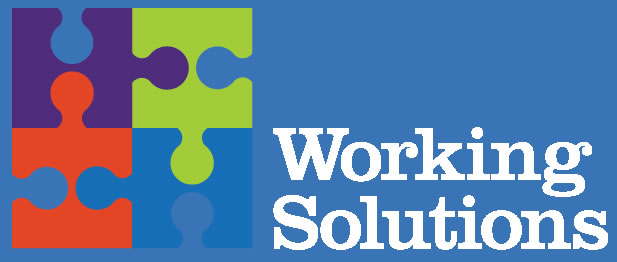 Congratulations to Working Solutions. On Friday, July 8, they funded their 400th microloan! The loan was made to Firebrand Artisan Breads, a local bakery in Oakland that is taking the Bay Area by storm with its signature breads and delicious pastries.
Congratulations to Working Solutions. On Friday, July 8, they funded their 400th microloan! The loan was made to Firebrand Artisan Breads, a local bakery in Oakland that is taking the Bay Area by storm with its signature breads and delicious pastries.
Working Solutions began in 1999 as a workforce development program under the auspices of TMC Financing. By 2005, the organization had commenced its own microlending program. Since then, they have provided over $9.8 million in lending capital to Bay Area businesses and perfected their holistic approach to community economic development by blending their lending services with business coaching and mentoring programs. In 2009, Working Solutions was officially designated a United States Community Development Financial Institution (CDFI).
MEF Board Director, Michael Leifer, Digital Candy
 Congratulations to Michael Leifer and the launch of Digital Candy. Digital Candy offers advanced artificial intelligence searches on the web to identify counterfeit products and misused logos, domains, images and video.
Congratulations to Michael Leifer and the launch of Digital Candy. Digital Candy offers advanced artificial intelligence searches on the web to identify counterfeit products and misused logos, domains, images and video.

September

Marinnovation — Tuesday, Sept. 13, 2016
4:30pm – 7:30pm, Marin Commons, San Rafael
visit marineconomicforum.org to register
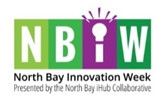
North Bay Innovation Week
September 12-16, 2016
Throughout Sonoma and Marin counties
visit: northbayihub.com
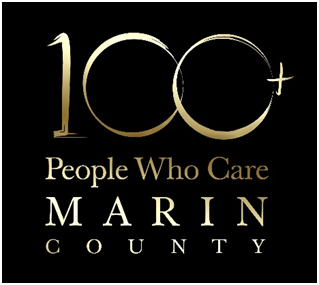
100MARIN — Wednesday, September 28, 2016
block party outside of Il Davide, San Rafael
6:00pm – 8:00pm
visit: www.100MARIN.org to register

The naming of the Marin Economic Forum’s new chief not only opens a new chapter for this important public/private partnership, but it also reinforces the Marin economy’s focus on building the county’s position as a center for the growing bio-sciences industry.
Jim Cordeiro recently took over as the forum’s chief executive officer, leading an organization the mission of which has been making sure that the economic health of our county is not left out of our decision-making process.
In recent years, the organization has been commissioned to do reports on the economic impact of Marin General Hospital, the economic benefits of the Marin Center complex, Novato’s role and position in the growing bio-sciences industry, Sausalito’s economic issues and the costs of homelessness in Marin.
These reports put important facts and figures on the table as local officials shaped plans for proposed buildings as well as long-term community planning goals.
The group has also promoted bolstering Marin’s standing as a bio-science center.
Fast-growing Bio-Marin and the important work of the Buck Institute for Aging Research are terrific cornerstones for building a center for an industry that likely won’t grow out of date.
Cordeiro, a scientist who had founded his own bio-tech company and has been active in the entrepreneurial community, should be a solid fit for the commission.
By Gary Quackenbush
North Bay Business Journal
The Life Sciences industry is among the fastest growing in the region, according to the North Bay Life Sciences Alliance annual report.
It identified 94 businesses in Marin, Napa, Solano and Sonoma counties involved in global life science markets. But there may be as many as 470 businesses across 20 different life science sub-industries with headquarters or branch offices in the North Bay, the report said.
There were 10,000 employed in life science jobs in the four counties as of mid-2015, the latest data in the April 30 document. That’s up by 100 jobs in life sciences, working out to generate more than $48 million in new-business income.
The multiplier effect of those 10,000 workers is estimated a $4.8 billion, or about 7.3 percent of the $65 billion regional economy. Since 2010, the 30 percent expansion rate of life science workers makes this category among the fastest growing industries in these four counties.
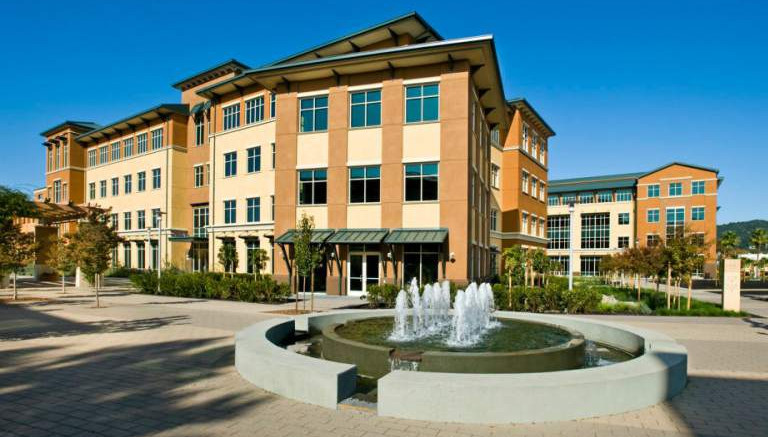
BioMarin
Life science industries include biomaterials and bioprocesses, medical devices and therapeutics, agricultural biotechnology, animal health and nutrition, and nutraceuticals.The alliance was started in 2012 to monitor trends in employment, financing, commercial space and government support for life sciences businesses in the four counties.
Life science industries include biomaterials and bioprocesses, medical devices and therapeutics, agricultural biotechnology, animal health and nutrition, and nutraceuticals.The alliance was started in 2012 to monitor trends in employment, financing, commercial space and government support for life sciences businesses in the four counties.
By Gary Quackenbush
North Bay Business Journal
The North Bay can be a productive growth medium for biotechnology and life sciences companies, but it needs investment dollars, both public and private, and talent, say area officials working to grow the industry.
“For us, the goal is how to use data to attract more bio/life science firms and researchers to the North Bay, as well as how to retain those who have chosen to come here,” said Jim Cordeiro, CEO of San Rafael-based Marin Economic Forum.
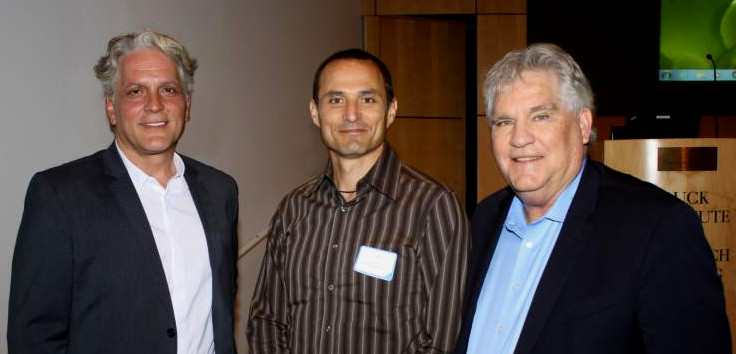 He, along with a host of other life science industry leaders, attended the 2016 BIO International Convention in San Francisco in June, where the consensus was that this industry is complicated — and not good at communicating its core messages.
He, along with a host of other life science industry leaders, attended the 2016 BIO International Convention in San Francisco in June, where the consensus was that this industry is complicated — and not good at communicating its core messages.
Founded in 2012, Marin Economic Forum is a nonprofit organization that collects, analyzes and disseminates information that affects local businesses while also collaborating with communities in which their employees reside. Industries targeted include biological and life sciences, agriculture, tourism, and manufacturing.
“Our goals include building greater collaboration and communication by integrating information technology into life sciences,” Cordeiro said. “This involves the use of good story-telling techniques to create an emotional connection to engage the imagination and communicate what science is all about in basic terms.”
The process begins with identifying the types of research being done today at the Buck Institute in Novato and other North Bay life science firms, as well as within the University of California system. Finding out what the life science industry wants is the first step leading to attracting capital and talent matching those needs.
“Life sciences start with capital for essential research, and there is local and private capital here for generating initial research, before seeking venture capital,” Cordeiro said. “At the same time, measurable metrics are required, as well as a strategic plan for utilizing data being collected.”
He said the end result will be a series of “product potential” models the forum can sell to life sciences firms, the community and investors going forward, as part of his organization’s plan to establish mechanisms for gaining funding support.
1,000 MORE JOBS
Cordeiro’s plans for the forum include establishing a firm connection between increasing economic development and job growth in life sciences, including a related goal to add 1,000 more life sciences jobs in Marin by 2020.
Read more at the North Bay Business Journal
By Adrian Rodriguez
Marin Independent Journal
A life sciences and biotech industry veteran has been tapped to lead the effort to attract and grow new business in Marin.
Jim Cordeiro, a co-founder of the now-defunct Oceana Technologies, a San Francisco-based firm, has been named CEO of the Marin Economic Forum, the San Rafael-based nonprofit.
“Jim is a great hire for this job,” said Robert Eyler, the forum’s chief economist and founding CEO. “He had a life sciences-based company and he was CEO of that company — he knows the industry very well. Jim also comes with some nonprofit board experience, where there was a political advocacy piece of it.”
Cordeiro, a 42-year-old Novato resident, succeeds Steve Lockett, who relocated to North Carolina after a half-year stint in the post, the forum announced last month.
Cordeiro has 18 years of industry experience working as a leading scientist at Nodality, Affymetrix and other biotechnology and academic organizations.
“One of the things the Marin Economic Forum is likely to do is get a little more involved in higher-level socioeconomic and sociopolitical issues in Marin County that affect Marin County business, and Jim has some experience in that, too,” Eyler said.
Cordeiro has served as an adviser and on the board of directors for the Pacifica Education Foundation, which has a focus on 21st-century learning and technology.
Marin Economic Forum’s $400,000-a-year budget is funded by the county of Marin, contributions from businesses and individuals, and revenue generated from economic reports prepared by the forum. The county provides matching funds up to $150,000 per year. Founding sponsors, who contribute a minimum of $10,000 a year, include Autodesk, Bank of America, Kaiser Permanente, Marin General Hospital, Whole Foods Markets, the city of Novato and the county of Marin.
The Marin Economic Forum has teamed with the city of Novato, the Buck Institute and other regional organizations to form the North Bay Life Sciences Alliance to promote further biotech development in the North Bay.
“The focus of the economic forum is how we can build a sustainable pipeline in the innovation space and life sciences,” Cordeiro said. “Through partnerships and collaborative efforts we are working on with them to commercialize the intellectual property that is generated through them.”
Marin Supervisor Judy Arnold, vice president of the forum’s executive board, said Cordeiro’s resume is impressive and he will serve the nonprofit well.
“He comes from a focus in life sciences, and the Marin Economic Forum is focusing on bringing more of that to Marin,” she said. “We are very excited about the possibilities to grow and for Marin County to become more of a go-to place for businesses and work.”
Cordeiro said there is room to grow in the existing industry, pointing out Marin’s biotech and life sciences leaders, including BioMarin Pharmaceutical Inc., Ultragenyx Pharmaceutical, Raptor Pharmaceutical Corp. and Cytograft Tissue Engineering,
“Life sciences is my background — it’s a passion of mine,” Cordeiro said. “These are the kind of jobs we want to make available, so people can afford to live and work here.”
Cordeiro holds a bachelor’s degree in marine biology from the University of California at Santa Cruz as well as several patents.
[pdf-embedder url=”https://marineconomicforum.org/wp-content/uploads/2016/06/Six-Marin-Public-Companies-Ranked-in-Bay-Areas-Largest-200.pdf”]

The Buck Institute
“The Buck Institute is absolutely an asset to the growth of life science commerce in Marin,” says Robert Eyler, Sonoma State University professor of economics and chief economist for the Marin Economic Forum. “Short of a leading research university, there’s nothing like it between the Golden Gate Bridge and the University of Oregon in Eugene.””
Read more at Marin Magazine
“Robert Eyler, chief economist of the Marin Economic Forum, said Marin cities could use the Netflix filming as an opportunity to attract other film shoots.”
Read more: Marin Netflix Series shoot brings economic benefits